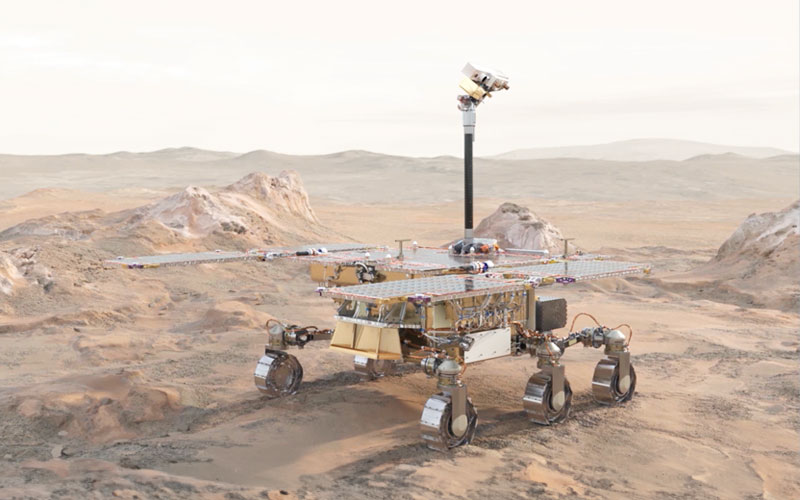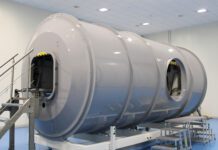
The European Space Agency has signed a €522 million framework contract with a Thales Alenia Space-led consortium to continue the development of the agency’s ExoMars 2028 mission.
With a launch targeted between October and December 2028, ExoMars will carry the Rosalind Franklin rover to the surface of Mars. The rover will be fitted with a drill developed by Leonardo that will be capable of penetrating the Martian surface to a depth of up to two metres. This is significant as it will allow the rover to collect samples from below the layer of soil sterilized by the effects of surface radiation. This will give the agency a chance to collect preserved organic material, which would be evidence of life on the Red Planet.
ExoMars had initially been scheduled to be launched in September 2022 in cooperation with Roscosmos. However, in March 2022, ESA severed all ties with Roscosmos, including its cooperation on ExoMars, as a result of the Russian invasion of Ukraine. In November 2022, at the agency’s ministerial-level council meeting, members voted to fund a revised ExoMars mission. In order to do this, Europe will need to develop a number of key elements of the mission that had originally been supplied by Roscosmos. ESA will receive some support from NASA with the agency announcing in in March 2023 that it had committed $30 million for 2024 to assist with funding the mission’s development.
The contract awarded to the Thales Alenia Space-led consortium will be divided into several tranches with a combined value of €522 million. The contract includes the maintenance and upgrade of elements already built and the development of the Mars Entry, Descent, and Landing Module. The company will also be responsible for assembly, integration, testing, and overseeing the launch campaign.
Thales Alenia Space in Italy will lead the consortium. The company’s French, Swiss, and Spanish subsidiaries will be responsible for the aeroshell, parachute, chambers, and electronic control unit for the landing module’s braking engines, as well as the actuator drive electronics for the rover. Airbus Defence & Space in the UK will be responsible for the rover and the mechanical, thermal, and propulsion systems for the landing module, ArianeGroup in France for the front shield and thermal protection for the aeroshell, OHB in Germany for the carrier module, and ALTEC in Italy for the Rover Operations Control Center (ROCC).







